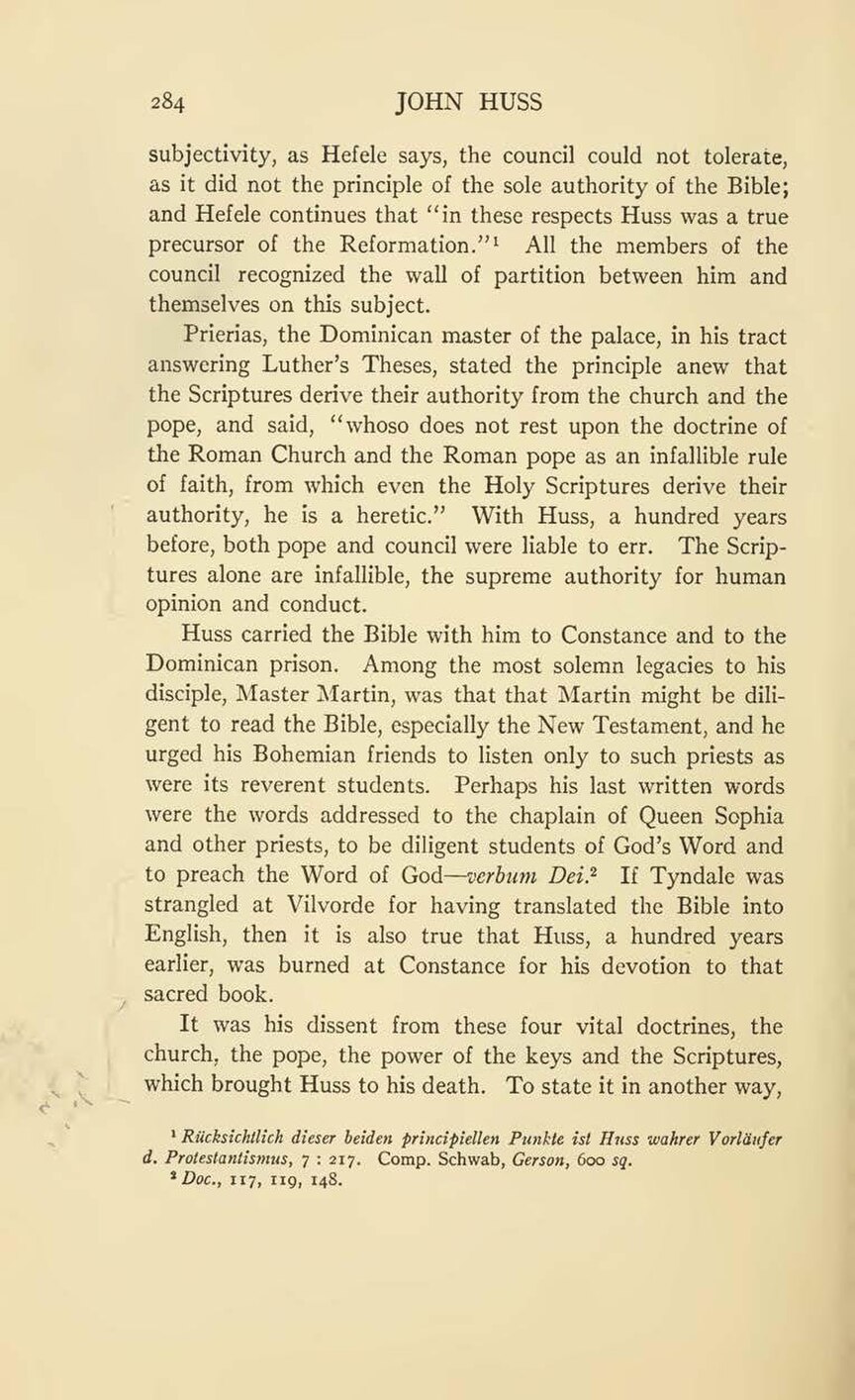subjectivity, as Hefele says, the council could not tolerate, as it did not the principle of the sole authority of the Bible; and Hefele continues that “in these respects Huss was a true precursor of the Reformation.”[1] All the members of the council recognized the wall of partition between him and themselves on this subject.
Prierias, the Dominican master of the palace, in his tract answering Luther’s Theses, stated the principle anew that the Scriptures derive their authority from the church and the pope, and said, “whoso does not rest upon the doctrine of the Roman Church and the Roman pope as an infallible rule of faith, from which even the Holy Scriptures derive their authority, he is a heretic.” With Huss, a hundred years before, both pope and council were liable to err. The Scriptures alone are infallible, the supreme authority for human opinion and conduct.
Huss carried the Bible with him to Constance and to the Dominican prison. Among the most solemn legacies to his disciple, Master Martin, was that that Martin might be diligent to read the Bible, especially the New Testament, and he urged his Bohemian friends to listen only to such priests as were its reverent students. Perhaps his last written words were the words addressed to the chaplain of Queen Sophia and other priests, to be diligent students of God’s Word and to preach the Word of God—verbum Dei.[2] If Tyndale was strangled at Vilvorde for having translated the Bible into English, then it is also true that Huss, a hundred years earlier, was burned at Constance for his devotion to that sacred book.
It was his dissent from these four vital doctrines, the church, the pope, the power of the keys and the Scriptures, which brought Huss to his death. To state it in another way,
